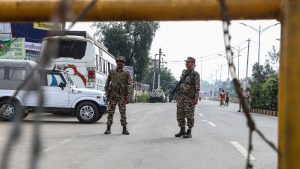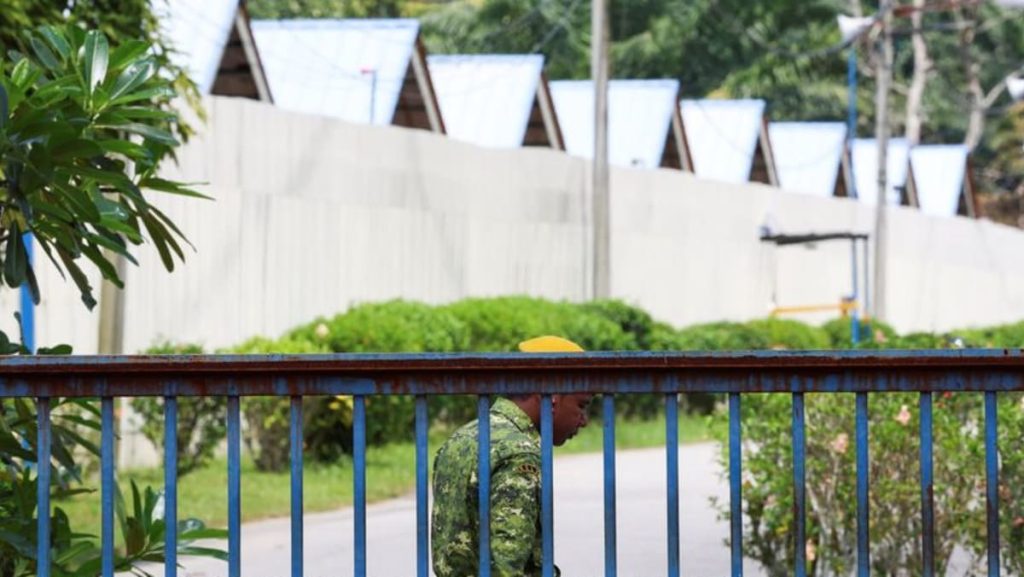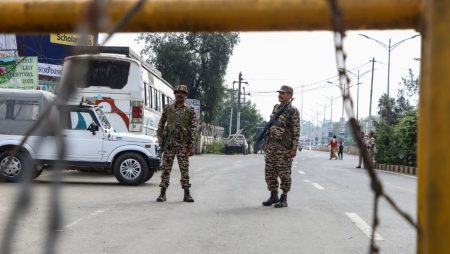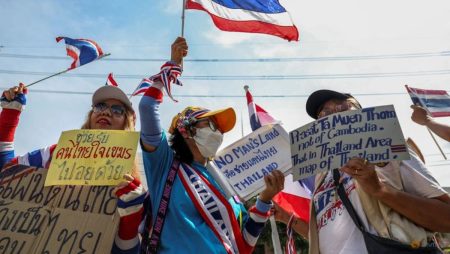The Malaysian government, through its Maritime Enforcement Agency (MMEA), intercepted and expelled two boats carrying approximately 300 undocumented migrants, believed to be Rohingya refugees from Myanmar, from Malaysian waters late Friday evening. The boats were located near the popular tourist destination of Langkawi, a prominent island off the northwestern coast of Peninsular Malaysia. While the MMEA provided basic humanitarian aid in the form of food and water, they subsequently escorted the vessels to the edge of Malaysian maritime territory, effectively forcing them to continue their perilous journey elsewhere. This action reflects Malaysia’s ongoing struggle to manage the influx of undocumented migrants, particularly Rohingya refugees fleeing persecution in Myanmar.
The incident occurred just one day after Malaysian authorities detained nearly 200 suspected Rohingya migrants who landed on Langkawi after their boat ran aground. This highlights the persistent and desperate attempts by Rohingya refugees to reach Malaysian shores, often undertaking dangerous sea voyages in overcrowded and poorly equipped vessels. The proximity of these two incidents underscores the urgency of the situation and the ongoing challenges faced by both the refugees and the Malaysian government in addressing this complex humanitarian crisis.
The Rohingya people, a Muslim minority group in Myanmar, have been subjected to systematic discrimination and violence, which has been described by the United Nations as a textbook example of ethnic cleansing. This persecution has forced hundreds of thousands of Rohingya to flee their homeland in search of safety and refuge, primarily to neighboring countries like Bangladesh and Malaysia. Malaysia, despite not being a signatory to the 1951 Refugee Convention, has become a common destination for Rohingya refugees due to its geographic proximity, relative economic prosperity, and shared Muslim faith. However, Malaysia’s policy towards undocumented migrants remains complex and often involves detention and repatriation, creating a precarious situation for those seeking asylum.
The MMEA’s decision to expel the two boats carrying approximately 300 migrants raises concerns about the safety and well-being of those on board. Forcing these vulnerable individuals back out to sea, particularly after providing minimal assistance, exposes them to significant risks, including further perilous sea travel, potential exploitation by human traffickers, and the possibility of being denied entry by other countries. This action also highlights the regional dimensions of the Rohingya refugee crisis, with Malaysia coordinating with neighboring countries like Thailand to monitor the movement of these boats and share information. This underscores the need for a comprehensive regional approach to address the root causes of the crisis and provide sustainable solutions for the Rohingya population.
The detention of the nearly 200 Rohingya migrants following their boat grounding further illustrates the desperate circumstances faced by those fleeing Myanmar. These individuals, having risked their lives on a dangerous sea voyage, are often met with detention upon arrival in Malaysia. While Malaysian authorities may argue that detention is necessary for processing and security reasons, human rights organizations have raised serious concerns about the conditions in these detention centers, citing issues such as overcrowding, inadequate sanitation, and limited access to healthcare and legal assistance. The prolonged detention of refugees, particularly in such conditions, can have severe physical and psychological impacts, further compounding the trauma they have already endured.
The Malaysian government’s response to the Rohingya refugee crisis reflects a complex interplay of factors, including domestic political considerations, economic constraints, and regional security concerns. While Malaysia has at times shown compassion towards the Rohingya, providing temporary shelter and basic necessities, its overall approach has been characterized by a reluctance to grant formal refugee status and a preference for repatriation. This policy, coupled with the challenges of managing the influx of undocumented migrants, underscores the urgent need for a comprehensive and sustainable solution to the Rohingya crisis, one that involves international cooperation, regional burden-sharing, and a commitment to upholding the human rights of all individuals, regardless of their nationality or immigration status. The recent incidents involving the expulsion and detention of Rohingya migrants highlight the precariousness of their situation and the ongoing need for a humane and effective response to this protracted humanitarian crisis.










